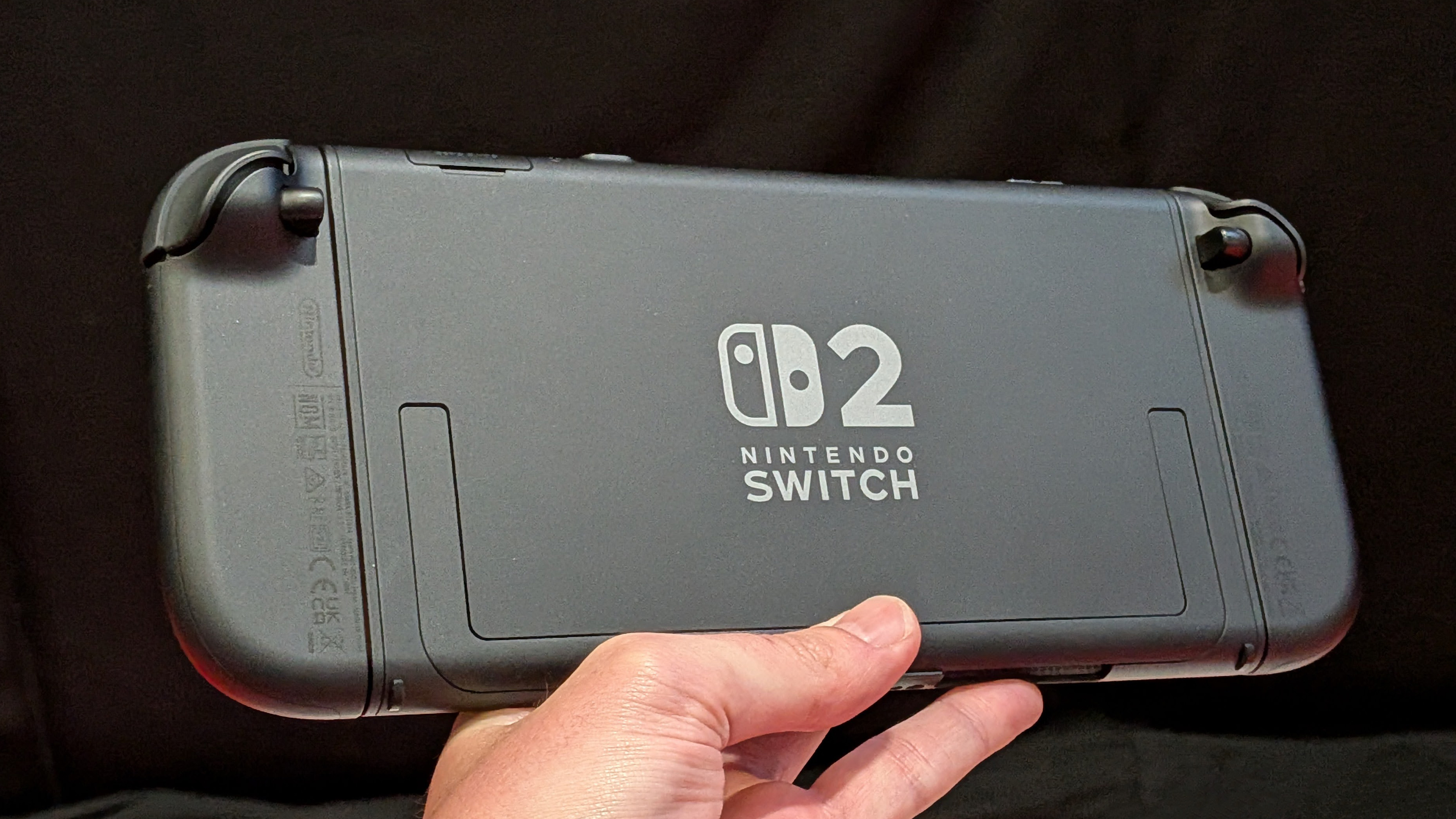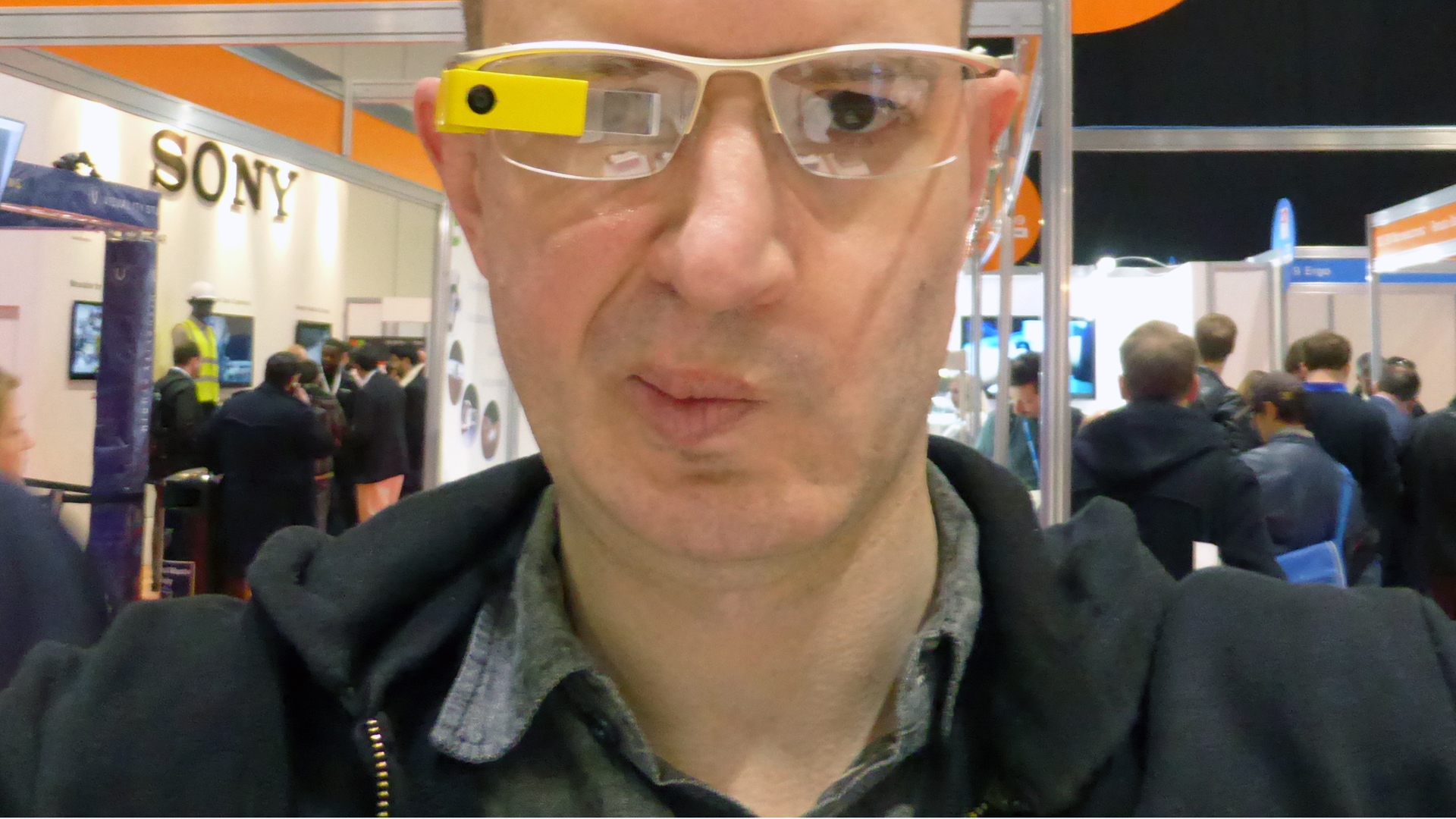
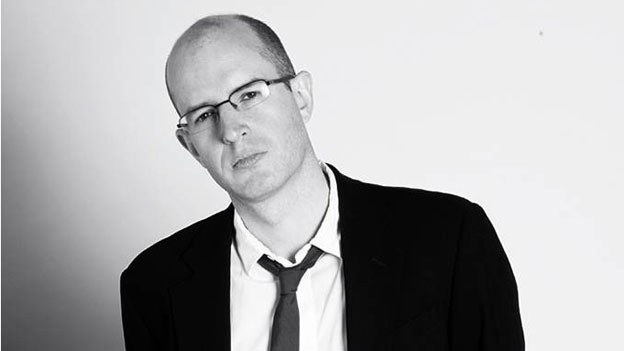
Did you know that Tissot put out a connected watch 11 years ago? Well it did, and here it is. Nice piece.
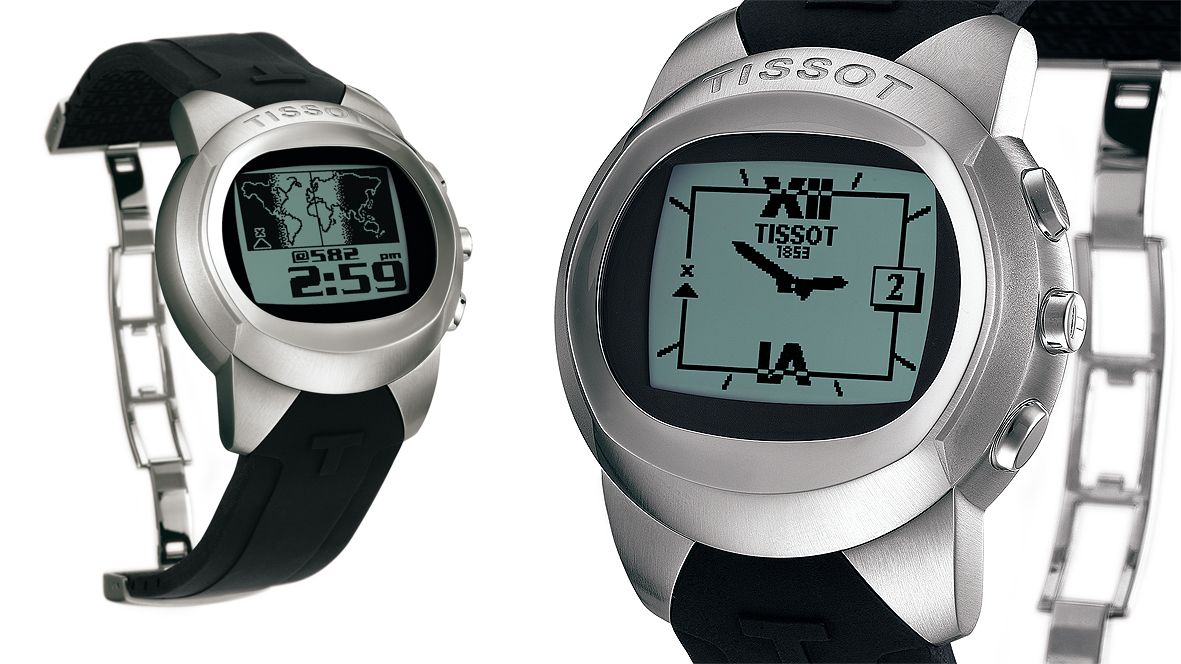
Did you know that Swatch did one 21 years back? Yup. The Swatch Beep let people contact you via your wrist. Then ten years later, the Tissot High T added web connectivity and, to an extent, apps. They were both pretty nice looking watches, too. They certainly stand up well next to a lot of today's wearables.
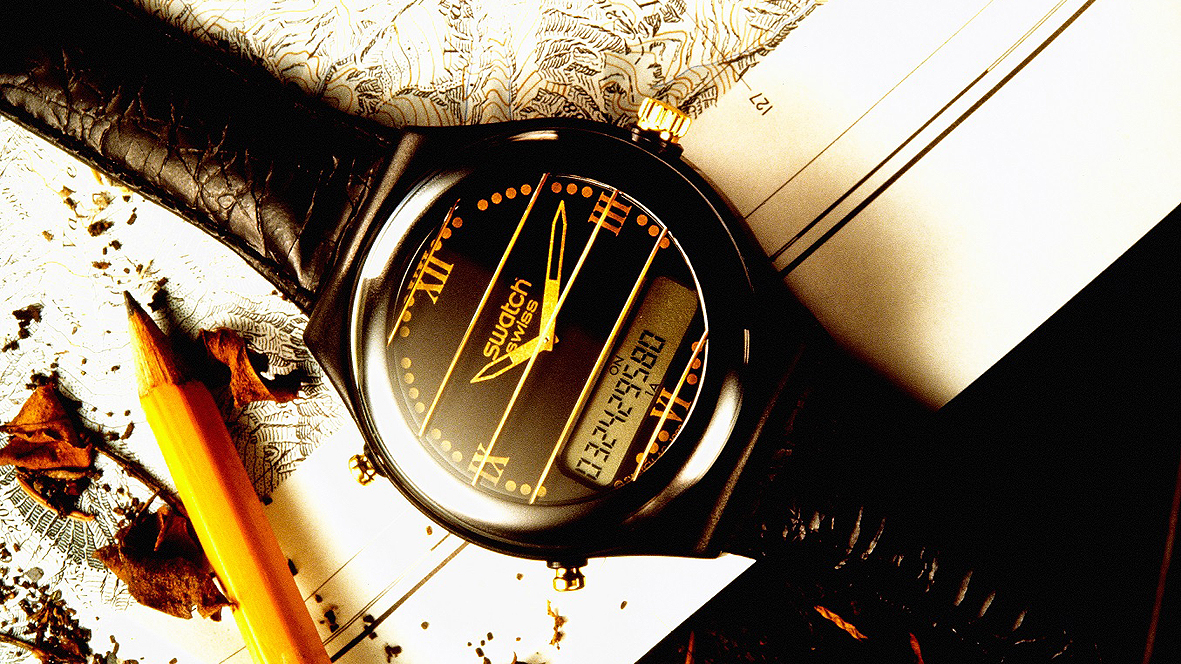
In the 'other' wearable camp, Fitbits have been around since 2008, bringing in their wake a huge wave of devices that let us track how far we've walked, run, cycled and so on.
The question is, although the screens have got slicker, the processing power greater and the feature sets larger, has wearable tech REALLY moved on all that much since these way points? And the answer is…
• Here are our favourite smartwatches, though
• The most feature-packed fitness trackers are right this way
Way back in 2014-15, wearables were the Next Big Thing. There was a swell of excitement around the most recent fitness wearables - step counters with sophisticated social networks, running watches with GPS and heart-rate monitors - smartwatches, in the form of Pebble and early Android Wear devices with the promise of an Apple take on it to come, and Google Glass.
Sign up to the T3 newsletter for smarter living straight to your inbox
Get all the latest news, reviews, deals and buying guides on gorgeous tech, home and active products from the T3 experts
Ah yes, Google Glass. That didn't work out quite as we'd hoped and I think the reason can be summed up by the picture at the top of this piece. That's actually a follow-up, non-Google-affilitated product that I found at London's 2016 Wearable Tech Show, the excitement levels of which are quite well summed up by the following images.

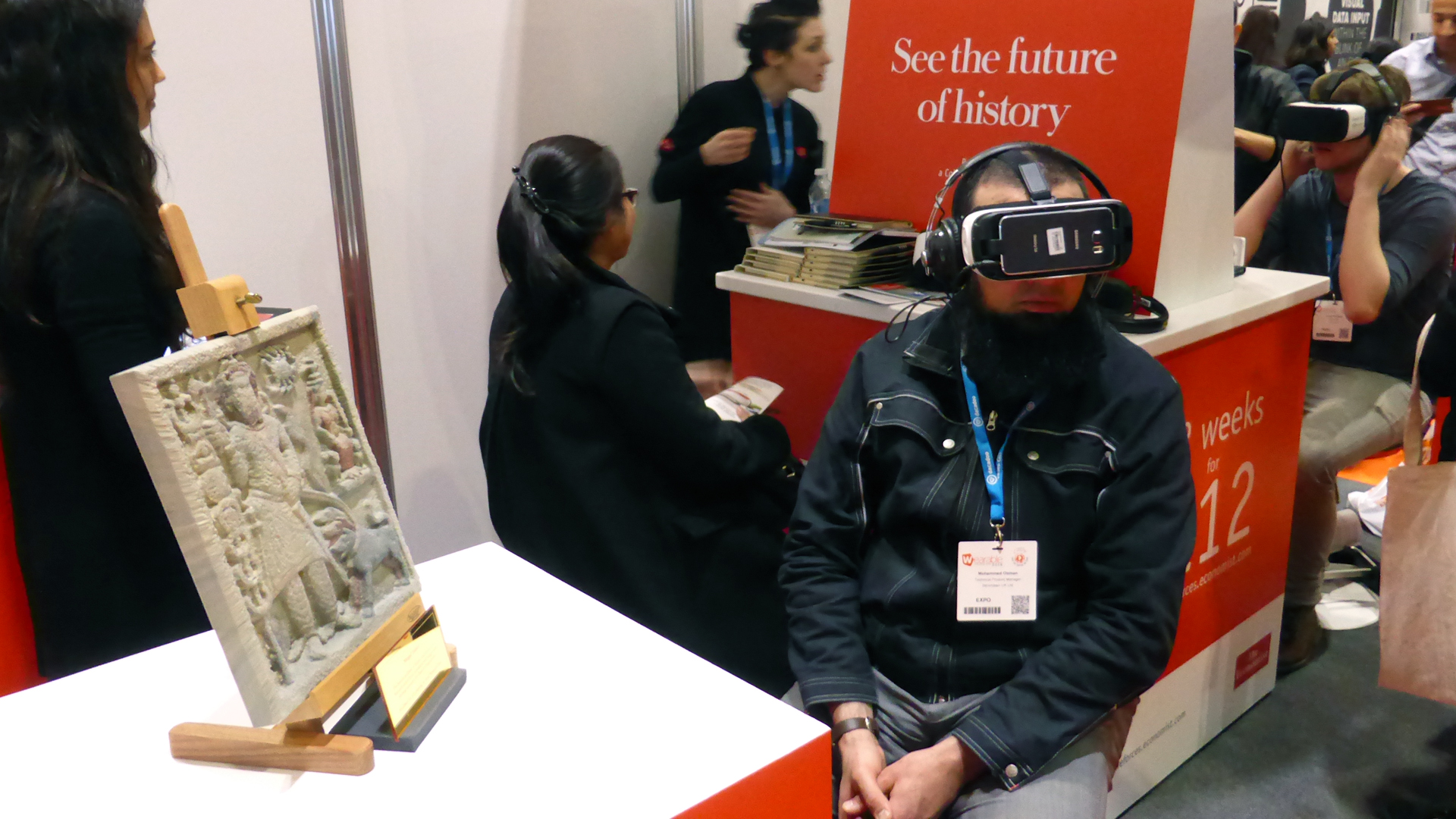
Woop!
Fitness wearables, for most people, are a classic example of a gadget you buy once, use (or not), and don't upgrade. Why would you? Once you get past the initial thrill of knowing how many steps you've taken or hours you've slept, what do you do with that information? They're largely terrible at offering context or advice, and even when they do, why would you trust it to be suited to your specfic needs and physiology? That's before you even get on to how accurate (or not) they are.
And as a side observation, I will say this: I have NEVER seen an unfit person wearing one. I'm sure there are exceptions but by and large fitness bands are for monitoring (and perhaps showing off) how fit you already are, not for rescuing people from immobility, infirmity or obesity.
So they get bought, they track some stats, then they retire to the back of the drawer.
Smartwatches, meanwhile, are a product with an identity crisis. Are they small phones you strap to your wrist, or are they luxury watches with a tech twist? At the moment they don't work as either.
Alerts, web-connected apps and being able to pay for things with a wave of your hand are nice, I guess, but we can already do all of them with phones. Actually, if anything, I find the constant buzz of notifications on a watch to be more unpleasant than helpful.
As luxury goods, smartwatches are also not quite there. The pricier versions of Apple's Watch and Tag Heuer's Connected watch come closest but they haven't yet lured that many people looking to spend £1,000+ on a watch away from traditional, mechanical ones.
Men only get to wear one or two bits of adornment: a watch, maybe a ring or necklace. Why would we waste valuable bodily showing-off space on a smartwatch with a one-day battery life, costing from £200 to £1,000?
Google's Glass's high profile appearance and retirement made clear that non-nerds don't want to wear a camera, screen and computer on their face, thanks very much. Claims about such devices being The Future seemed way off to me even at the time, and they seem laughable now.
The question wearables have yet to answer is why we should shell out a load of money to access information we can, largely, already get on the phones we carry absolutely everywhere and check with frenzied regularity.
I don't mean all this to mean that wearables have failed totally and are a dismal disaster. Tech is not a zero sum game.
However, I do feel confident in saying that wearables aren't going to reach anywhere near the giddy heights predicted a few years back, when the Wearable Tech Show was new and growing, and to be young and writing about tech was very Heaven.
Wearables are a reasonable-sized niche. Some of the running watches are pretty good, if you're a runner. But they're never going to be massive. I think of them as a half way house between mobile devices and the eventual arrival of smart implants. They're the MiniDiscs of mobile.
Duncan is the former lifestyle editor of T3 and has been writing about tech for almost 15 years. He has covered everything from smartphones to headphones, TV to AC and air fryers to the movies of James Bond and obscure anime. His current brief is everything to do with the home and kitchen, which is good because he is an excellent cook, if he says so himself. He also covers cycling and ebikes – like over-using italics, this is another passion of his. In his long and varied lifestyle-tech career he is one of the few people to have been a fitness editor despite being unfit and a cars editor for not one but two websites, despite being unable to drive. He also has about 400 vacuum cleaners, and is possibly the UK's leading expert on cordless vacuum cleaners, despite being decidedly messy. A cricket fan for over 30 years, he also recently become T3's cricket editor, writing about how to stream obscure T20 tournaments, and turning out some typically no-nonsense opinions on the world's top teams and players.
Before T3, Duncan was a music and film reviewer, worked for a magazine about gambling that employed a surprisingly large number of convicted criminals, and then a magazine called Bizarre that was essentially like a cross between Reddit and DeviantArt, before the invention of the internet. There was also a lengthy period where he essentially wrote all of T3 magazine every month for about 3 years.
A broadcaster, raconteur and public speaker, Duncan used to be on telly loads, but an unfortunate incident put a stop to that, so he now largely contents himself with telling people, "I used to be on the TV, you know."
